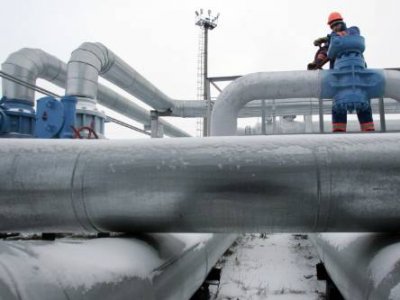 Walter Boltz told it was in everyone`s interest for European consumers to find a solution to the problem that has cut supplies to Europe.
Walter Boltz told it was in everyone`s interest for European consumers to find a solution to the problem that has cut supplies to Europe.
Russia should let Europe upgrade Ukraine’s gas grid and transport fuel across it, so political tensions between Kiev and Moscow do not lead to regular supply problems, the head of Austrian energy regulator E-Control said.
Russia broke off talks with Ukraine on Tuesday after Kiev angered the Kremlin by asking European Union investors to help modernise its gas pipeline network, which supplies one fifth of Europe’s gas.
Walter Boltz, head of E-Control and vice chairman of the European Regulator’s Group for Electricity and Gas (ERGEG), told Reuters on Tuesday it was in everyone’s interest for European consumers to find a solution to the problem that has cut supplies to Europe in two of the last five winters.
“It has to be a European solution because the current model where Russia is basically responsible commercially for the transit is overlaid by all this political background … which makes the relationship between Ukraine and Russia very difficult, very delicate and likely to erupt every other month,” he told Reuters in an interview in London.
“There is really no reason why this should be done by Russia and why we shouldn’t pay for it … We buy the gas on the Russian-Ukrainian border and we worry about the transport from there … I think there is no other alternative.”
Austria was one of the countries most affected by the mid-winter Russian gas crisis that left parts of Europe without heating fuel in the middle of one of the coldest winters in decades. Boltz, who also sits on the Council of European Energy Regulators, said the threat of another supply crisis this year remained despite Kiev and Moscow settling the last row with a long-term agreement on the price Ukraine will pay for its own supply. “I think there is a realistic chance that even before that we have some problems again … We are in a very delicate situation,” he said, pointing to Ukraine’s financial problems.
“It could well be that some months they are just not able to pay and Russia is also in a much worse situation to give them credit.”
Boltz said it was natural for Russia to deliver the fuel to its customers at the Ukrainian border with Europe when Ukraine was part of the Soviet Union. But the world has changed.
“Now it seems Russia has had increasing difficulty in managing this transit, and not for technical reasons but for some commercial and, I would say, political reasons,” he said.
“It really is in the common interest of Russia, Ukraine and Europe that we find a good solution for the transit of gas.”
 Eurasia Press & News
Eurasia Press & News
